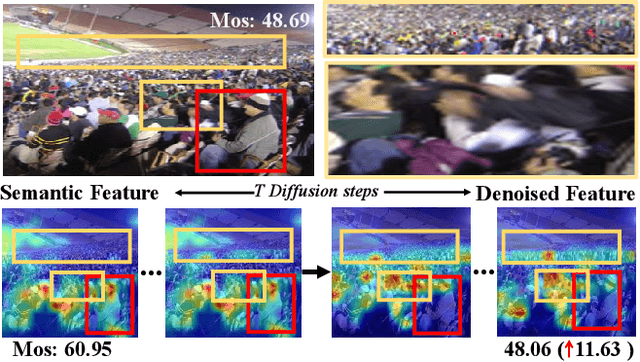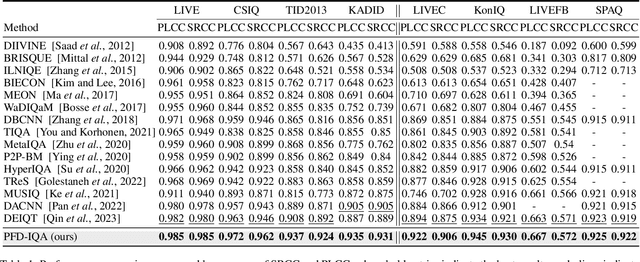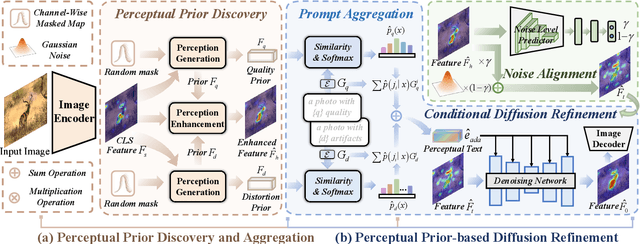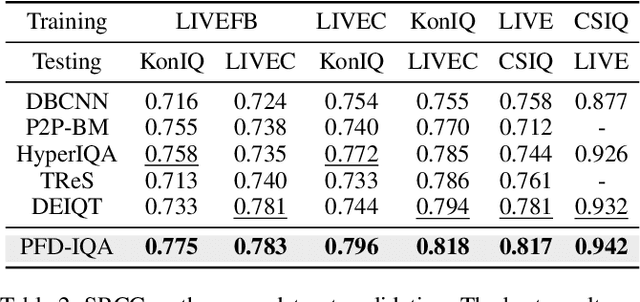Feature Denoising Diffusion Model for Blind Image Quality Assessment
Paper and Code
Jan 22, 2024



Blind Image Quality Assessment (BIQA) aims to evaluate image quality in line with human perception, without reference benchmarks. Currently, deep learning BIQA methods typically depend on using features from high-level tasks for transfer learning. However, the inherent differences between BIQA and these high-level tasks inevitably introduce noise into the quality-aware features. In this paper, we take an initial step towards exploring the diffusion model for feature denoising in BIQA, namely Perceptual Feature Diffusion for IQA (PFD-IQA), which aims to remove noise from quality-aware features. Specifically, (i) We propose a {Perceptual Prior Discovery and Aggregation module to establish two auxiliary tasks to discover potential low-level features in images that are used to aggregate perceptual text conditions for the diffusion model. (ii) We propose a Perceptual Prior-based Feature Refinement strategy, which matches noisy features to predefined denoising trajectories and then performs exact feature denoising based on text conditions. Extensive experiments on eight standard BIQA datasets demonstrate the superior performance to the state-of-the-art BIQA methods, i.e., achieving the PLCC values of 0.935 ( vs. 0.905 in KADID) and 0.922 ( vs. 0.894 in LIVEC).
 Add to Chrome
Add to Chrome Add to Firefox
Add to Firefox Add to Edge
Add to Edge